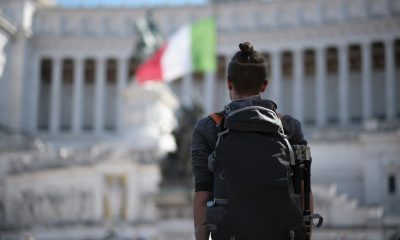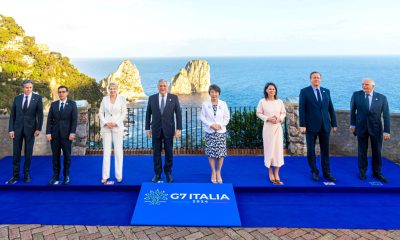Ba Lan
Bức tường biên giới mới của Ba Lan cho thấy Belarus đã bị EU xóa sổ

On 14 October, a draft bill to initiate the building of a wall on Poland’s border with Belarus was approved by the lower house of the Polish parliament. The country’s senate will vote on the plans in the coming weeks with the governing ‘Law and Justice’ party having thrown its weight behind them, clearly desperate to stem the flow of refugees coming from Belarus.
The source of the migrants is the Belarusian President Alexander Lukashenko, whose regime endured a raft of sanctions imposed on it by the US, UK, and EU this summer, widely seen as ineffective and counter constructive. Lukashenko has now identified vulnerable refugees as an effective way of striking back.
Despite Lukashenko’s deliberate provocation, the construction of a border wall is evidence that Europe’s leaders have ruled out an attempt to resolve the crisis by diplomatic means. Instead, it looks as if they have given up on Belarus and its people, with the new border wall drawing an iron curtain across Europe once more.
A migrant crisis emerges
In the summer, isolated but unbowed by the West’s regime of trade and financial sanctions, Lukashenko began to offer nhập cảnh không cần thị thực into Belarus to refugees from across the world. His government has built connections with a network of people smugglers who transport the newly arrived migrants to the EU’s eastern border and then secure them entry into the bloc.
The Belarussian government even charges a fee for every refugee they provide to the smugglers, and as a result of both parties’ efforts, Poland’s border force has reportedly had to stop 16,000 migrants from entering the country since August. However, figures show that large numbers are still managing to evade detection and make it to Western Europe.
The migrants who đang apprehended at the border are subjected to grim conditions in the EU’s holding centres, with the bloc’s ailing response to the current wave of refugees being reminiscent of the 2016 migrant crisis and the lives lost in the Mediterranean that year.
The EU’s lack of interest in diplomacy
By severing relations with Belarus, the EU has shunned pragmatism and has instead chosen a border wall as its preferred mode of diplomacy. In terms of the wall’s financing, a senior Polish politician bình luận gần đây that it would cost upwards of €110 million but official government estimates revealed that the figure might be as much as €350m.
While the upfront cost and inevitable disruption to trade symbolise the economic ramifications of erecting a trên thực tế dam between Central and Eastern Europe, it’s the Belarusian people who will ultimately bear the greatest burden.
Economic isolation from the West has damaged their industries, particularly their potassium chloride (potash) producers, while failing to dislodge the repressive Lukashenko. As a consequence, the Belarussian government has turned east to Vladimir Putin, who has been all too happy to provide viện trợ tài chính và quân sự, thus pulling Belarus deeper into his orbit.
This development is an ominous sign that a union between the two countries is not far off and many figures in EU policymaking circles are calling on the bloc to rethink its strategy and not write Belarus off just yet. Gerald Knaus, the chairman of European Stability Initiative (ESI), đã lập luận rằng with Lukashenko cemented in power and playing hardball, the EU’s strategy cannot simply be to engage in ‘a contest of brutality’.
Instead, Knaus has called for a diplomatic dialogue to be initiated between the bloc and Belarus, with the aim of ‘protecting human lives and protecting human dignity’. The rolling back of sanctions on the Lukashenko government in return for democratic and humanitarian reforms is seen as the pragmatic, and the moral, solution to the worsening migrant crisis.
A second Berlin Wall
The EU sees itself as a progressive organisation and the European Commission has explicitly stated that its foreign and security policy is "based on diplomacy and respect for international rules". It lists trade, humanitarian aid and development cooperation as being at the heart of what the EU does on the global stage, but the Belarusian crisis tells a different story.
Enlightened diplomacy, perhaps the EU’s core founding value, has been forgotten and the lives of ordinary Belarusians have been made worse as a result. To ensure that their democratic freedoms are returned, the EU should heed the advice of experts like Gerald Knaus, stepping back from its Trump-style border and ineffective sanctions policy, and engaging in constructive negotiations with the Lukashenko regime.
The erection of the Berlin Wall in 1945 led to nearly half a century of stagnant living standards in Eastern Europe under the Kremlin’s iron fist and the EU is on the verge of condemning Belarus to a similar fate.
Chia sẻ bài viết này:
-

 Thuốc lá4 ngày trước
Thuốc lá4 ngày trướcTại sao chính sách của EU về kiểm soát thuốc lá không hiệu quả
-

 Trung Quốc-EU5 ngày trước
Trung Quốc-EU5 ngày trướcChung tay xây dựng một cộng đồng chia sẻ tương lai và tạo ra một tương lai tươi sáng hơn cho quan hệ đối tác toàn diện Trung Quốc-Bỉ cùng nhau hợp tác thân thiện
-

 Ủy ban châu Âu5 ngày trước
Ủy ban châu Âu5 ngày trướcViệc di chuyển không hoàn toàn tự do đến Vương quốc Anh dành cho sinh viên và lao động trẻ
-

 Trung Đông5 ngày trước
Trung Đông5 ngày trướcPhản ứng của EU trước cuộc tấn công tên lửa của Israel vào Iran đi kèm với cảnh báo về Gaza



















